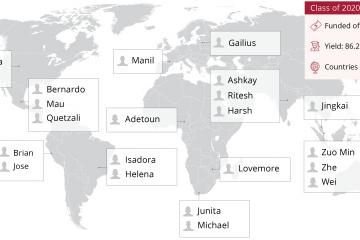
Learner spotlight: Combining online courses with classroom learning

Fredric is a current high school student and, at seventeen, is the youngest student in the incoming class to MIT’s blended Master’s in Data, Economics, and Development Policy (DEDP). As the program has no degree prerequisites other than the completion of the MicroMasters credential in DEDP, Fredric will follow an inverted educational path by pursuing a Master’s degree before pursuing undergraduate education.
He will join 21 classmates from around the world in the program’s inaugural cohort as they arrive on MIT’s campus this spring. Following the program, Fredric will return to his home country of Singapore to serve in the armed forces before beginning his undergraduate studies.
For me, completing the J-PAL/MITx MicroMasters in Data, Economics, and Development Policy (DEDP) was not an easy path. Instead, it was rigorous, intellectually stimulating, and satisfying.
Currently a student from Singapore in Shanghai, I am a voracious consumer of economics books. I looked to the MicroMasters DEDP program as an extremely exciting opportunity to study microeconomics, development economics, and statistics, with an emphasis on the practical process of running randomized evaluations.
Throughout the entire online experience, the courses never lost their aura of novelty. Every week I was challenged with new concepts and applications. The classes thoroughly built on my economics foundation through digital MIT “classrooms” with video lectures, extensive slides, handouts, problem sets, and discussion forums. Despite the intensity of the courses, the numerous examples the professors weaved into their lectures demonstrated the relevance of each module.
The MicroMasters also helped me to deepen my established passions, which include organizing a speaker series at my high school. I realized that if I wanted the series to be impactful, I needed to bring in speakers who were at the forefront of making change. Our speakers now include those working in institutions like the Asian Development Bank and the Asian Infrastructure Investment Bank.
Through the experience of editing my international affairs journal, Vision, I have understood that the program teaches the concept of giving the data a story. This encouraged me to build upon the econometric and machine learning skills I gained from the course “Data Analysis for Social Scientists” with a research assistantship at a local university. These skills will broaden my horizons during the capstone project at the end of my Master’s program, during which I hope to make an impact.
Now, I am honored to be joining the first class of students in the blended Master’s in Data, Economics, and Development Policy starting at MIT this January. At MIT, I am excited to not only engage with the four on-campus courses, but also participate in the weekly departmental research seminars in development economics. This immersion in the field of economics promises to be extremely rewarding.
I am looking forward to gaining this academic knowledge—and equally, to meeting my amazing classmates, professors, and fellow members of the MIT community. All of this will contribute to a well-rounded Master’s education.
Immediately after the blended Master’s program, due to my obligations as a Singaporean citizen, I will enlist in the armed forces as part of National Service. With an opportunity to further my organizational and logistical discipline, this arrangement will allow me to engage in postgraduate research during my undergraduate studies!
My message to those considering enrolling in the J-PAL/MITx MicroMasters in DEDP: if you seek to solve global challenges, you will be enlightened by the data-driven approach underlying the research and policy proposals. You will find the program more than worthwhile—not only to advance your career, but also to deepen your knowledge about how the world works.

